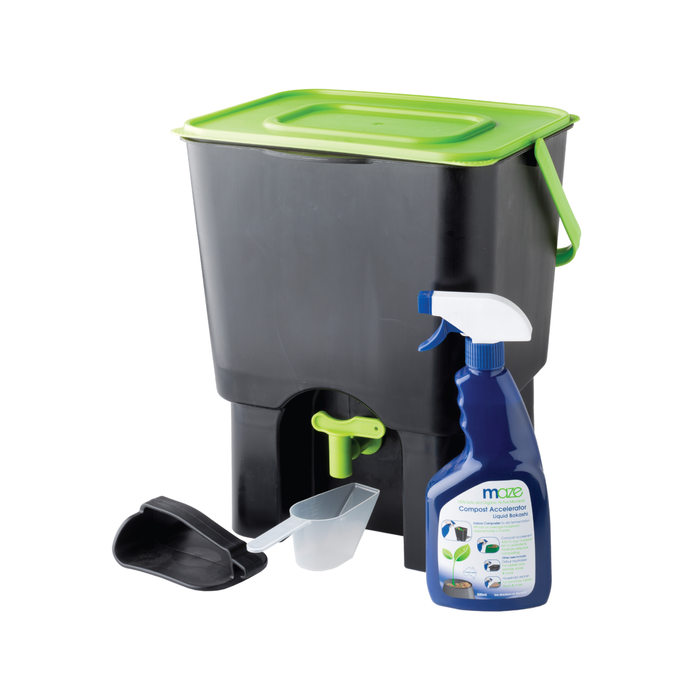Unlike traditional composting which requires oxygen, bokashi composting is anaerobic (occurs without oxygen). The bin is sealed to create a low-oxygen environment that promotes fermentation rather than decomposition.

.png) Pro's
Pro's
✔️ Suitable for homes with limited outdoor space
✔️ Can compost meat, diary and cooked foods that are typically unsuitable for traditional composting systems
✔️ Faster decomposition (2-4 weeks) due to the anaerobic fermentation process
✔️ As this bin is sealed, it isn't subject to pests.
✔️ Does not require turning or mixing
✔️ Provides a fluid residue which improves soil health.
Con's
❌ Ongoing cost - approximately $13 per bokashi mix bag
❌ Limited capacity for processing food scraps. If you generate a lot of food waste, you may need multiple.
❌ Following the fermentation process, compost must be buried in soil or added to a traditional compost bin to fully decompose.
❌ Not suitable for garden waste (leaves, grass, trimmings etc)
❌ May have a mild ferment odour
Eligible rebate
Need some inspiration? Check out:






.png)